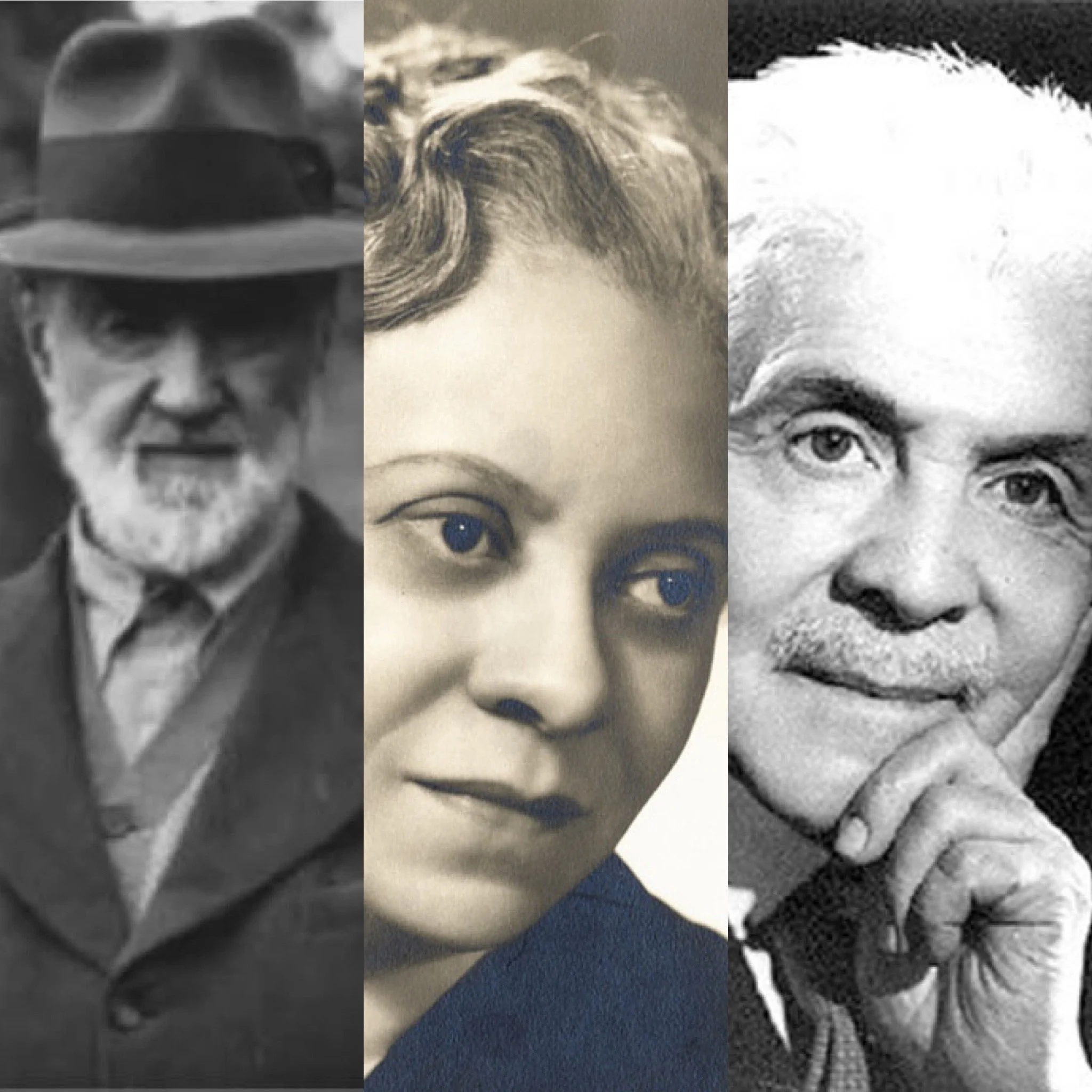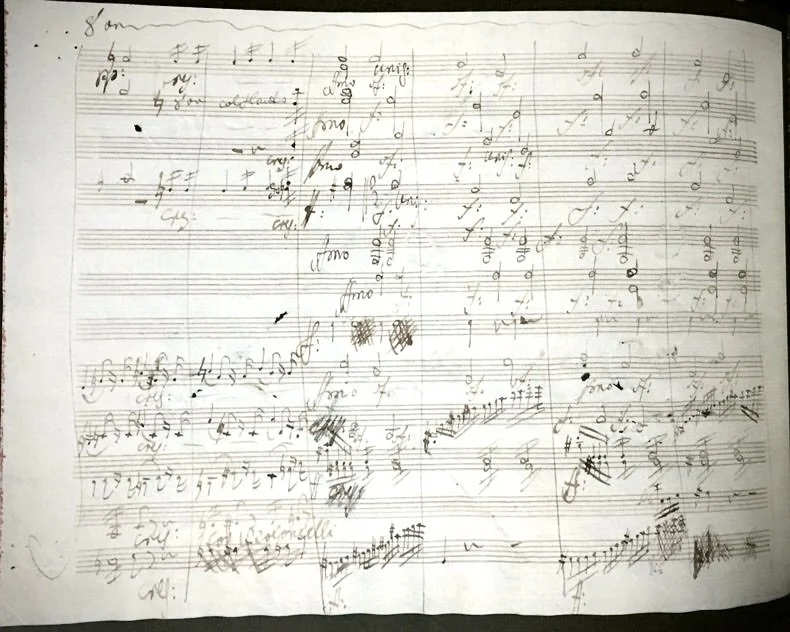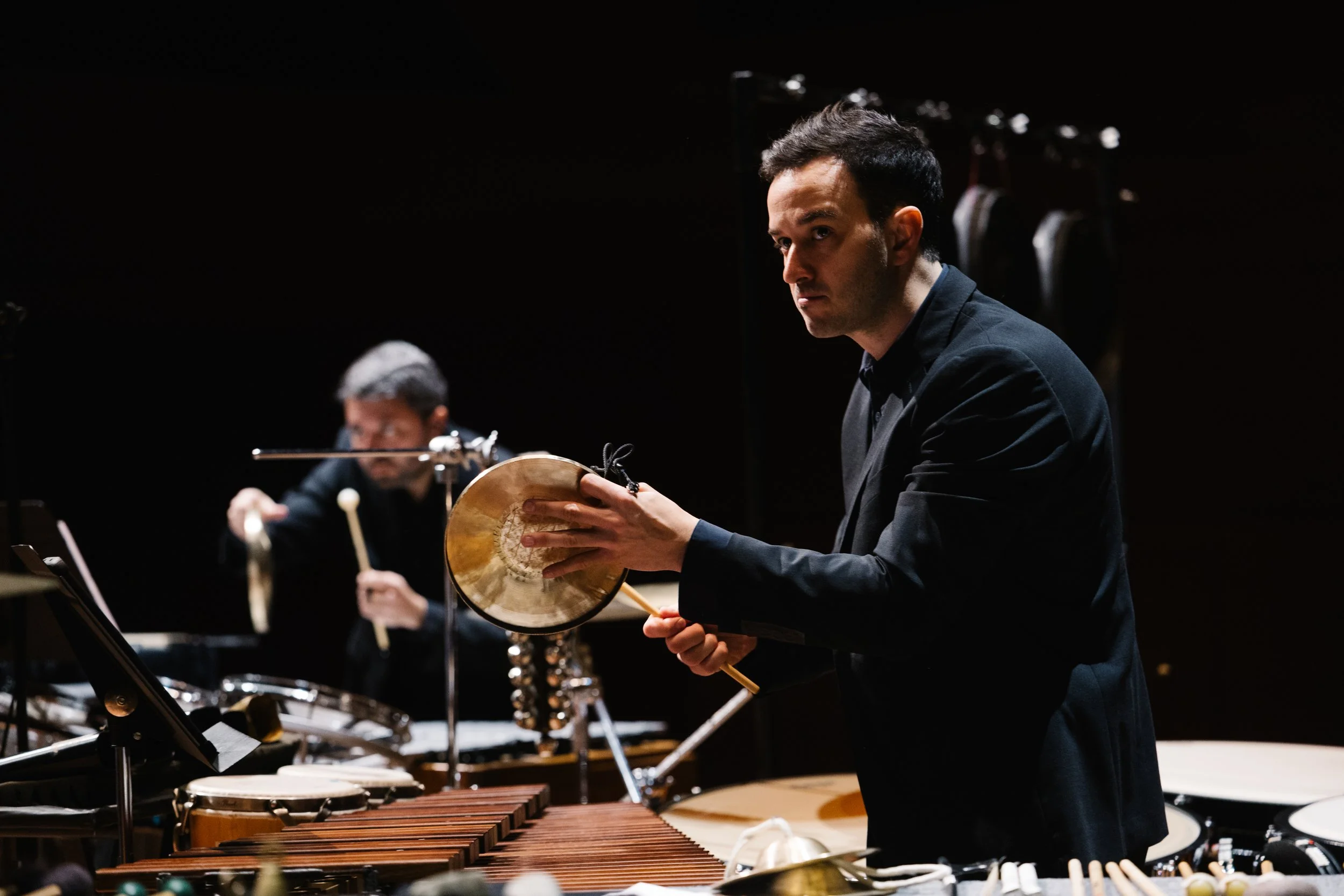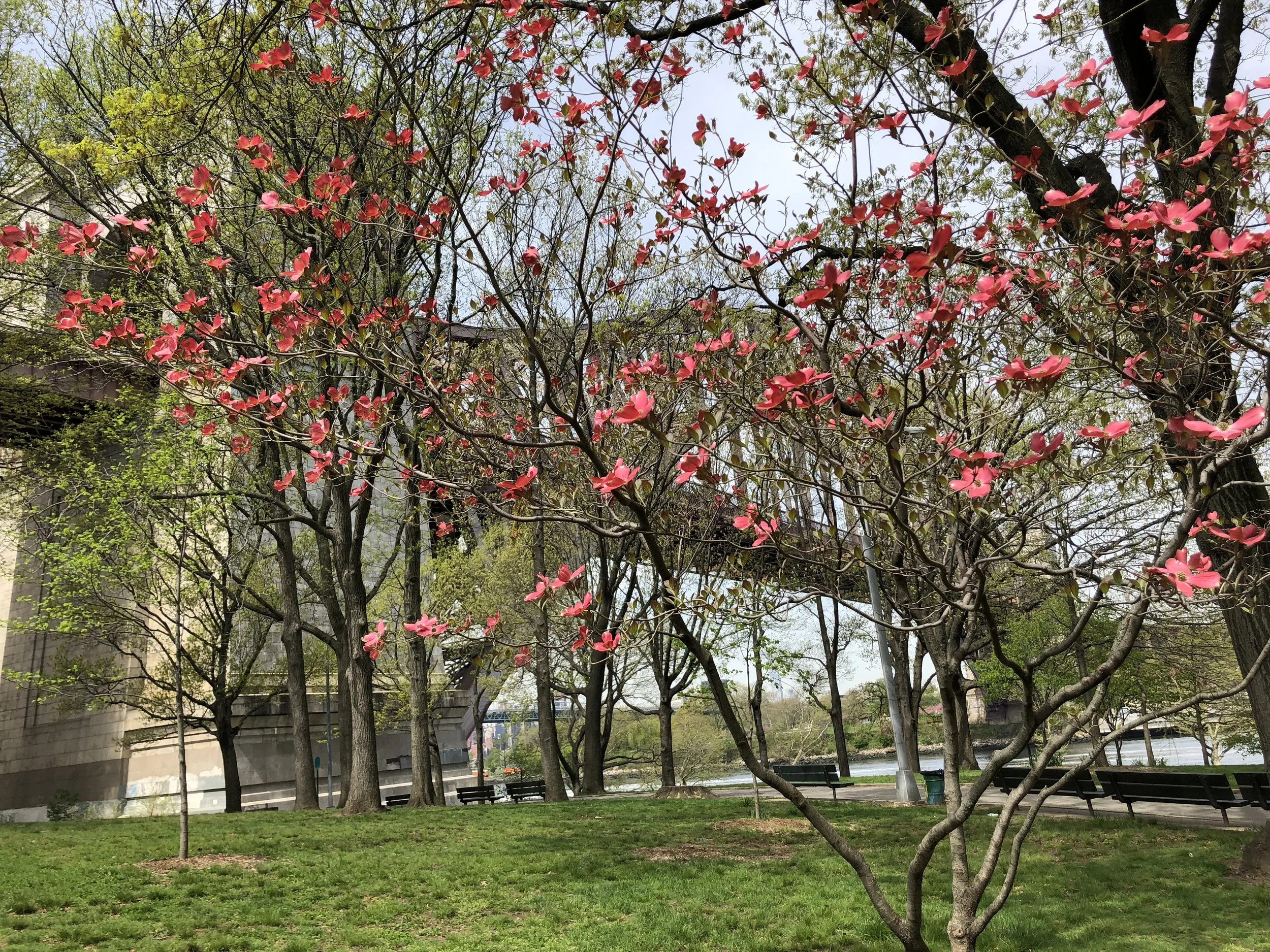REVIEW: Daniil Trifonov Waltzes Through Moody Program
Trifonov’s swap of Barber with Rachmaninoff’s Variations on a Theme of Corelli raised the question of what story this unusual program was telling, especially, after experiencing the Sturm und Drang of the curtain-raiser. Pyotr Ilyich Tchaikovsky's Piano Sonata in C-sharp Minor, a posthumously published work, dating from 1865 when the composer was a 25 year old student, was a fascinating concert opener.
REVIEW: The Philadelphia Orchestra's Sublime Mahler's Third
Mahler’s Third, which clocked roughly an hour-and-three-quarters this evening and requires women’s chorus, children’s chorus, alto soloist, and orchestral heft including eight horns, is more seldom programmed than his Second, or Bruckner’s Seventh (a mere hour-and-ten-minutes). But, Nézet-Séguin commands this monumental epic assuredly, not wasting a drop of the legendary Philadelphia institution inherited from legendary maestros such as Stokowski and Ormandy. And Mahler’s Third is as Mahlerian as his symphonies come — a broad canvas on which he depicts and explores “nature,” and the human experience, in the broadest sense.
REVIEW: Gustavo Dudamel and Natalia Lafourcade Build Bridges With L.A. Phil
Carnegie Hall’s 2024-25 season opened with Gustavo Dudamel and the Los Angeles Philharmonic in three concerts that established a jubilant tone for the venue’s new festival, Nuestros sonidos (“Our Sounds”), which celebrates the impact of Latin-American culture on the United States.
PREVIEW: October's Classical Music in NYC
CadenzaNYC's October 2024 curated list of NYC's classical music highlights.
REVIEW: National Sawdust's "Silent Light"
Silent Light, the new, immersive opera by composer Paola Prestini and librettist Royce Vavrek, based upon the 2007 Dutch film Stellet Licht, transports us to a Northern Mexican Mennonite community in this captivating parable of love, duty, temptation, and the role of women in society.
REVIEW: Parlando's Powerful Music of Night
The nocturne and the enduring theme of night music was explored in the latest Merkin Hall performance by Parlando. Conductor Ian Niederhoffer, who founded this intrepid and promising chamber orchestra in 2019, conceived and led a packed house through an insightful and captivating rumination on the musical night-scape.
REVIEW: New York Philharmonic Makes It About the Music
Eyes and ears are focused on the New York Philharmonic this week. A new collective bargaining agreement with the American Federation of Musicians has been reached, promising significant pay increases and important cultural changes. Future music director Gustavo Dudamel doesn’t take the helm until 2026, and role of CEO is currently in limbo.
REVIEW: American Classical Orchestra Celebrates 40 Years
The American Classical Orchestra opened their 40th season on a joyful note. Under the baton of Artistic Director Thomas Crawford, Wednesday’s concert at Alice Tully Hall celebrated the audience as much as the venerable period-instrument ensemble itself. Serving up one of classical music’s great crowd-pleasers, Ludwig van Beethoven’s Seventh Symphony, Crawford combined a light, breezy touch with heartfelt investment in the music of the eighteenth and nineteenth centuries.
REVIEW: Imagining a World Without Humans
mɔɹnɪŋ [morning//mourning] was presented here in an hour-long version ... The piece takes as its premise that humans have all suddenly disappeared, and explores what might happen to the planet afterwards, taking its cue from Alan Weisman's 2007 book "The World Without Us." It's billed as an opera, but at least in this incarnation is more of a semi-staged oratorio; while the five excellent performers (Gelsey Bell, Aviva Jaye, Brian McCorkle, Mia Pak, and Paul Pinto) have character names listed in the program, they are never used, nor do they interact as ongoing characters.
PREVIEW: September in NYC's Classical Music Highlights
CadenzaNYC's Preview of NYC's Classical Music Highlights September 2024. Listings include Lincoln Center, New York Philharmonic, Carnegie Hall, Met Opera, and other leading venues in Manhattan, Brooklyn, and more.
REVIEW: The Sylvan Winds Among Friends
The Sylvan Winds concluded their forty-fifth season as one of New York’s premiere woodwind quintets with a convivial, festive concert at Merkin Concert Hall. Joined by a mixture of friends and former ensemble members, the evening featured fresh new works, as well as beloved classics, and expanded into veritable wind ensemble works with thirteen players. A “baker’s duodecet?”
REVIEW: Evgeny Kissin Connects and Communicates at Carnegie Hall
The salon-like ambiance was ideal for Beethoven at his most Schubertian: Piano Sonata No. 27 in E Minor, Op. 90, a two-movement piece from the composer’s “late-middle” (or some could argue, “early-late”) period. Far from the bombast of the Appasionata, the first movement of Op. 90, “Lively, with feeling and expression throughout,” finds the composer turning inward, examining — through an expansive sense of melody that points the way not only for Schubert, but Romantic composers in general — the dichotomies of existence, the positive and negative implications of each musical germ. And by the second movement, a lilting rondo “To be played no too fast and very songfully,” it was clear that melody — not only Kissin’s plush, versatile voicing in the keys, but his free flowing eloquence in sculpting and shaping phrases — was the star of this show.
REVIEW: "An American Soldier" Documents an American Tragedy
AIt was a difficult opera to watch. As Danny Chen, Brian Vu’s powerful lyric tenor is as steely as it is plush, and he delivered a brave, stoic performance that haunted the courtroom proceedings, shared lighter scenes with hints of romance with the earnest and clear mezzo-soprano Hannah Cho, and endured unconscionable, racially-motivated violence.
REVIEW: The Knights Meld Musical Styles at Zankel Hall
This was the third and final concert of The Knights’ residency at Zankel Hall this year, and Heirloom, of which the orchestra was a co-commissioner, was receiving its pandemic-delayed New York premiere. Heirlooms is a three-movement work on themes of intergenerational inheritance, with one movement based on the entangling of Gabriel Kahane’s parents’ musical lives and his own, one on his grandmother’s post-war feelings about German music, and the third on the unknowable question of what his children will inherit from him.
REVIEW: Orbiting the Jupiter Symphony
Mozart’s Symphony No. 41 in C Major, K. 551 is a force of nature, a masterpiece that seems an integral fabric of our musical galaxy, (if you were born after 1788). Like the weather and the sky, it continues to surprise and awe. Known better by its moniker Jupiter, the piece formed the nucleus of the final concert of American Classical Orchestra’s 39th season. Winkingly united under the theme Astronomical, Thomas Crawford led his venerable period instrument orchestra in an evening of selections that brought telescopic perspective to the orbital trajectories, the half-lives, of musical compositions.
REVIEW: Songs and Snow, and a Battery of Percussion
Powerful stories of humanity enduring oppression and turmoil took the form of epic soundscapes in Chamber Music Society of Lincoln Center’s Songs and Snow, a luxurious performance of two works by composers who march to the beat of their own drums, while sharing an Ives-ian, pan-musical palette: recently departed George Crumb and Chinese-born Tan Dun.
PREVIEW: May's Classical Music Highlights in NYC
CadenzaNYC’s curated highlights of NYC’s classical music events for May 2024
REVIEW: Hanzhi Wang's Revelatory Virtuosity Gains the Accordion New Fans
In the United States, if we think of the accordion at all, we are likely to have images of polka bands, French ballads, or Lawrence Welk. Perhaps we remember the Far Side cartoon whose top caption reads “Welcome to heaven, here’s your harp,” followed by “Welcome to hell, here’s your accordion.”
REVIEW: Tiergarten Transports
“Yessssss…you may applaud,” winked Kim David Smith, following his breathless opening set as Master of Ceremonies of Tiergarten, the monumental, immersive cabaret experience being staged in The Great Hall under the Church of St. Mary on the Lower East Side. One of the strongest entries in Carnegie Hall’s season-long festival examining the Weimar Republic, Tiergarten is a spectacular convergence of art and entertainment.



















